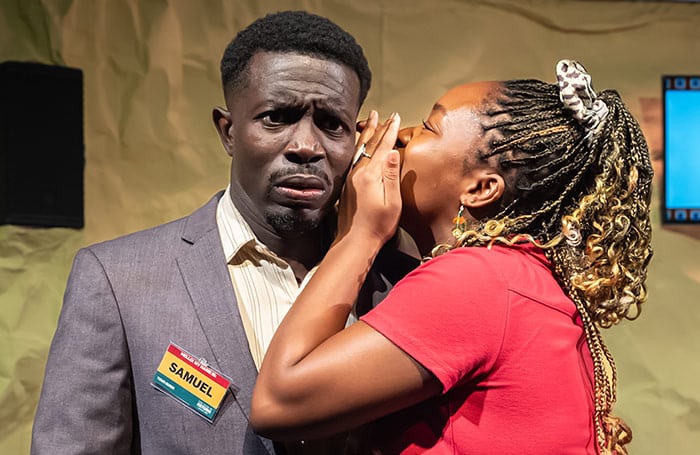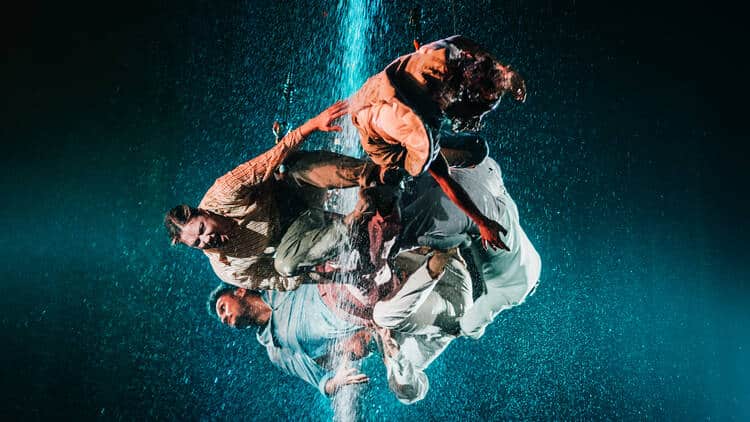The Yard
Covid rather dominated the end of 2019, starting 3 years of global upheaval that we are still paying for. However, 2019 was the year of return, marking 400 years since the first enslaved Africans touched down in Hampton Virginia, stolen from Ghana by the British. An international tragedy that dwarfs the pandemic in death toll and lasting effect.
The initiative celebrated the achievements of the African diaspora, driving tourism specifically to Ghana and bearing witness to the bloody atrocity that was the Trans-Atlantic slave trade. Celebrities like Naomi Campbell, Idris Elba, and Cardi B participated. Overall, 1.9 billion pounds enriched the local economy directly related to the year of return activities.
But what were the effects of the experience, such an exploration of a painful history on the people providing the “closing the circle experience”? What about the people on the ground? Samuel Takes a Break (I’m not typing the full title every time) examines this in all its onion-like layers. Welcome to Cape Coast Castle, one of the forty such forts built along the Gold Coast by European colonisers. Milla Clarke’s bleached and roughly hewn rock walls feature three passages and a reception desk. It is down to Christopher Nairne’s phantasmal lights and Xana’s haunting sound to transport us between the governor’s crumbling quarters, the isolation cells, and cramped dungeons.
Fode Simbo is the eponymous lead and our tour guide. Samuel is professional, sincere, and wholeheartedly believes in the importance of understanding the past. Yet also trapped and slowly succumbing to whatever is left for him within the claustrophobic walls. Simbo is a delight to behold, a cohesive, confident, and ranged actor navigating a post-colonial world as a modern Ghanaian. From head to toe the painfully serious and lonely Samuel. Also, it’s his birthday “Happy Birthday Samuel”!
Thankfully Rhianna Ilube’s bubbling prose isn’t rigid when it comes to feeling. We ricochet from tragedy to comedy, from discussions of slavery to discussions of lunch. Driving a lot of the comedy expertly is Orange (Bola Akeju), the receptionist, and Samuel’s “work wife” (her words not Samuels). Akeju is an engrossing stage presence, everything she does is swaddled in the insolence and exuberance of youth (21 how revolting). Whether she is yearning to leave the castle or yearning for Samuel, you’ll find yourself in stitches, guiltily realising the subject matter of the play and trying to pull yourself back. A massive testament to Ilube’s creative vision and scope. To bring a lightness of touch, an everyday reality to a piece that then plummets headfirst into one of humanity’s most inhuman periods.
But what about the tourists, the Campbell’s, Elba’s, and B’s? The returning masses that both give purpose and undermine Samuel’s sense of self. Muti-rolling chops are called for as Tori Allen-Martin and Stefan Asante-Boateng must play them all. Fragile Jamaican aunts following in the footsteps of their ancestors, insufferable Instagrammers following the footsteps of internet clout, religious pastors, and most taxingly the ghosts of the former “owners” of the castle. This they both do with clarity, re-entering transformed, again and again, character after character. The highlight (their longest roles) is a couple from London, requesting a night tour. At odds throughout with bursts of deliciously mundane arguments, driving both Orange and Samuel into an evening where everything blurs.
Anthony Simpson-Pike has staged a masterpiece, and I don’t use that word often. Ilube’s sublime script deconstructs colonialism, globalization, and the complexity and tension between the African diasporas. Nothing short of astounding. Simpson-Pike has brought the very best out of the incredible actors/creatives involved, combining sharp choices to utterly transform The Yard. A shadowy spectre lurks behind Samuel and Orange, stalking their actions, questioning how we exhibit and interact with our shared troubling pasts. This is fringe theatre as its most impressive, most encompassing, and most free.



